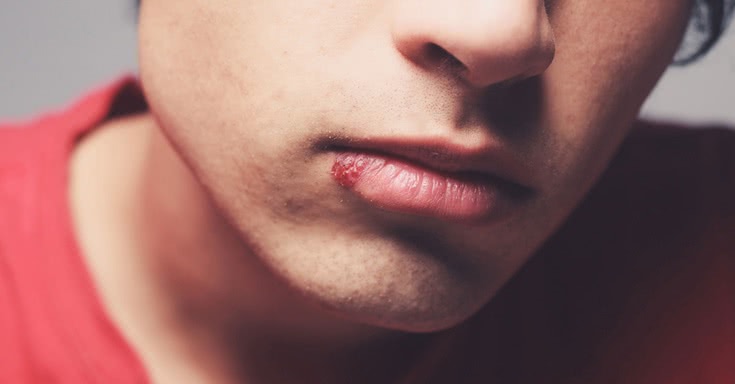Cold sores, also referred to as fever blisters, can occur when you acquire the herpes simplex virus (usually type 1) – a very common infection. The virus causes fluid-filled blisters that are small in size and occur around the lips and inside the mouth. For many, cold sores recur throughout life because the virus remains in the nervous system between outbreaks.
The virus, mainly acquired during childhood, remains dormant in anticipation of a weakened immune system caused by illness, stress, or other triggers. Other people, however, may only experience them once or twice in a lifetime.
Cold sores usually begin with a burning feeling, itching, or stinging around the mouth. Painful sores then appear, typically on the ends of your lower lip. These usually clear up without cold sore treatment within 7 to 10 days.
Causes
Cold sores are often induced by the HSV-1 type 1 infection (herpes simplex virus). In most instances, the virus is transmitted during childhood, such as when a kid is kissed by an acquaintance or a family member who has a cold sore. The virus enters the body through the skin and ascends to the nerves, where it remains dormant until it is activated later, mostly when the immune system gets weakened.
Cold sores may be produced by HSV-2 (herpes simplex virus type 2) on rare occasions. This can occur during oral intercourse with a person who has genital herpes, often caused by HSV-2. When you have genital herpes, stinging blisters form on your genitals and the nearby areas.
Cold sore outbreaks have been linked to a Vitamin B deficiency in the body as this vitamin helps promote healthy cell growth and a robust immune system.
Other underlying causes known to cause recurrent cold sores include fatigue, stress, other viral infections or illness, changes in your immune system, hormonal changes such as those experienced during menopause, menstruation, or pregnancy, and exposure to harsh temperatures (cold, wind, or sunlight). Respiratory infection or recent dental surgery may weaken your immune system temporarily, exposing you to the possibility of a cold sores outbreak.
Prevention
An essential amino acid, lysine, has been seen to aid in the prevention of cold sores. Lysine is present in numerous foods that we consume on a daily basis. You can enhance your intake by consuming a dietary supplement of 1 gram of lysine thrice a day.
Antiviral medications such as acyclovir or valacyclovir can be used on a regular basis in the prevention of cold sores. This decreases the likelihood of cold sores recurring by roughly one-third.
Exercising strengthens your immune system, helps to reduce stress, and promotes healing. This will all help to prevent recurring outbreaks.
Sunscreens can assist you if sun exposure triggers the reappearance of cold sores. Avoiding triggers like wind or sun exposure, which might activate the virus, may also be beneficial.
Taking Echinacea will help to improve your immune system. It will also ward off the virus.
B-Complex supplements taken daily can help to strengthen your immune system.
Cold Sore Treatment
Antiviral medications can modestly shorten the healing period. These oral medications are most effective when taken at the first sign of a cold sore, shortening the symptoms by one or two days. Antiviral creams are not as effective as oral medication and require application several times a day for at least five days.

Applying peppermint oil to the location of the cold sores will aid in the battle against the infection.
You may also apply a lysine ointment to the affected area. During the outbreak, avoid foods that contain the amino acid arginine as it offsets the benefits gained by lysine. Arginine-rich foods include almonds, chocolate, peas, beer, gelatine, peanuts, and grain cereals.
Lemon balm, a plant that resembles mint, has been found to cut healing time in half in some people when applied to the area with cold sores. It also aids in the prevention of subsequent outbreaks.
Using ice packs on the affected area at the early stages before the sores fully develop will help reduce inflammation and numb the pain.


